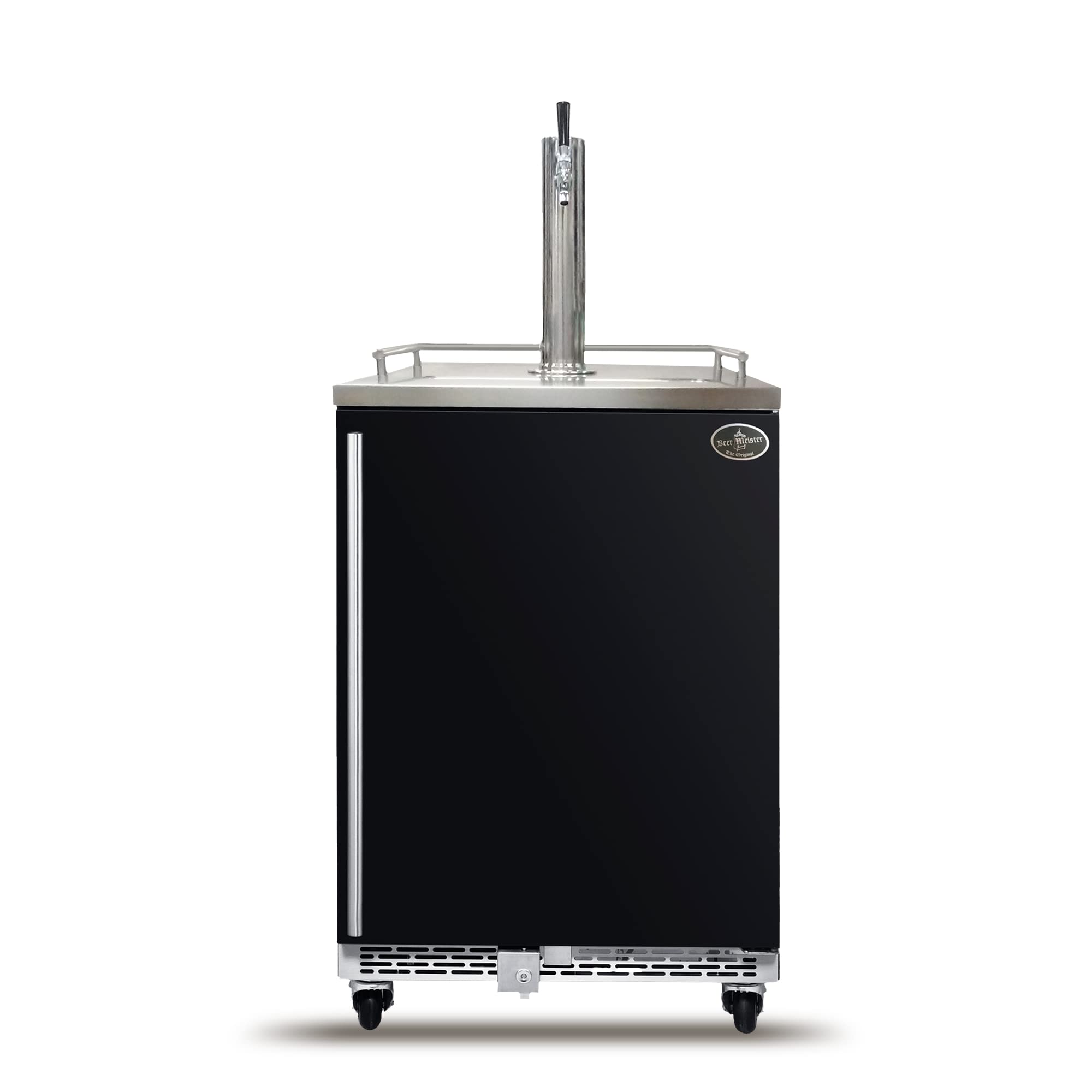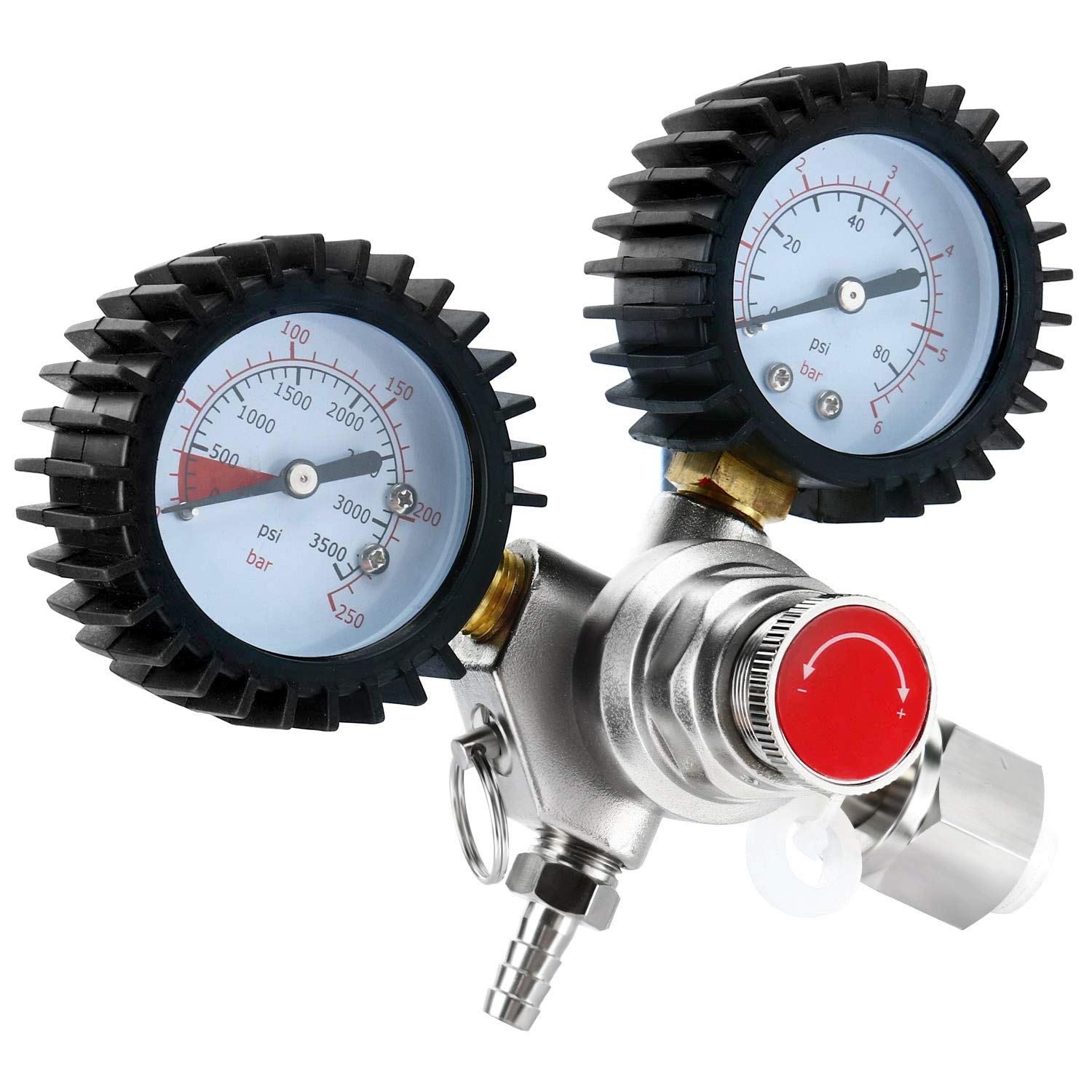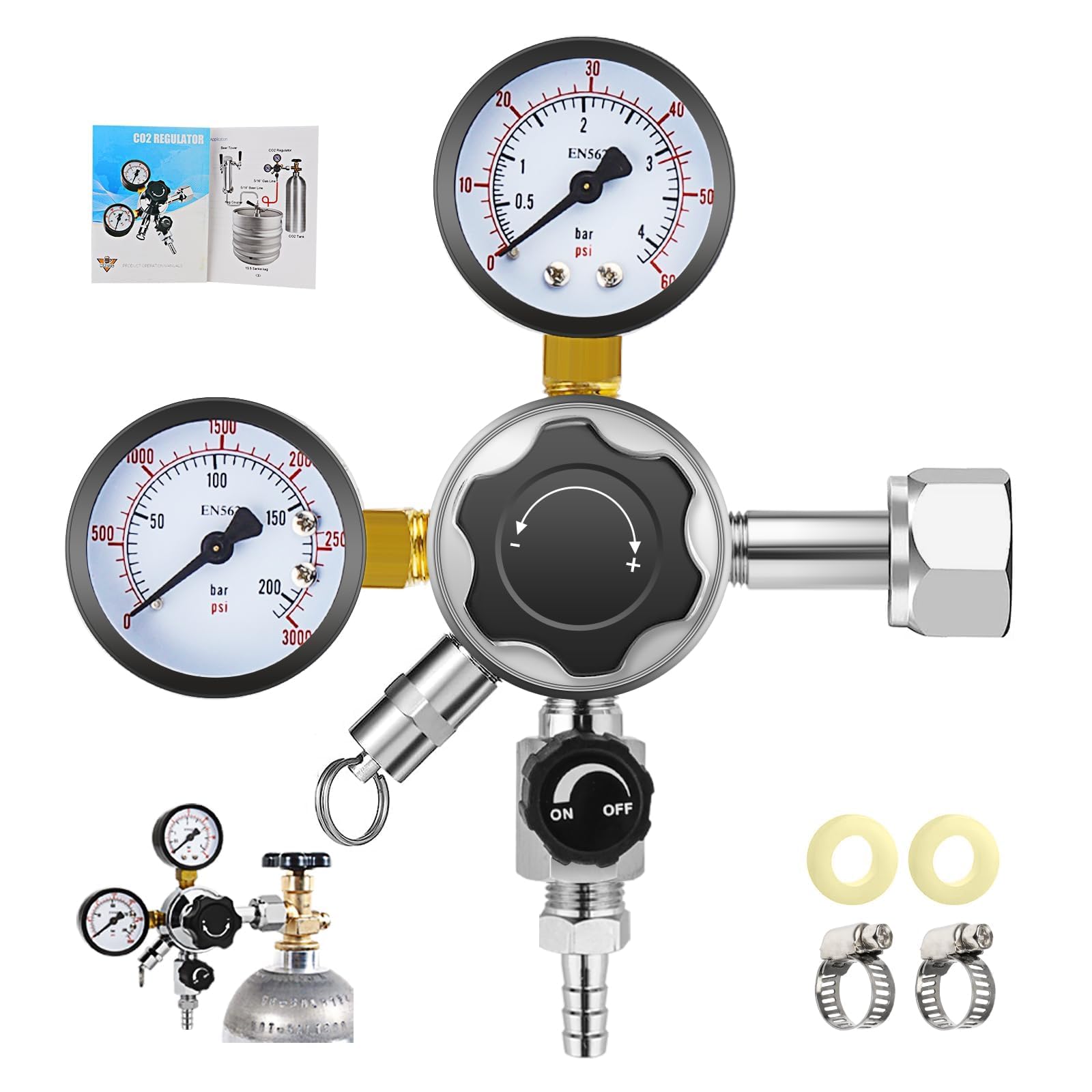Ready to take your homebrewing to the next level? A home kegging system transforms how you serve your beer—no more tedious bottling sessions, no more bottle bombs, just fresh draft beer on tap whenever you want it.
After helping dozens of homebrewers set up their kegging systems and testing numerous setups ourselves, we’ve compiled this comprehensive guide to the best home kegging systems available in 2025.
Quick Picks
- Best Complete System: Ivation Full Size Kegerator ($600-700)
- Best Budget Option: Basic CO2 + Keg Setup ($200-300)
- Best Premium: Beer Meister Triple Tower ($800-900)
- Best for Small Spaces: Mini Keg System ($150-200)
Why Switch to Kegging?
Bottling a 5-gallon batch takes 2-3 hours. Kegging the same batch? 15 minutes. Beyond the time savings:
- Carbonation Control: Dial in exact CO2 levels for any beer style
- Faster Turnaround: Force carbonate in 24-48 hours vs 2-3 weeks in bottles
- Less Oxidation: Closed transfer = fresher beer
- Professional Presentation: Impress guests with draft beer at home
- No Cleaning Bottles: Seriously, this alone is worth it
Complete Kegerator Systems
Ivation Full Size Dual Tap Kegerator
Price: $650-750
The Ivation is our top pick for most homebrewers. It’s a complete plug-and-play system that fits either a full half-barrel keg, a quarter-barrel keg, or two sixth-barrel (Cornelius) kegs—perfect for homebrew.
What’s Included:
- Dual-tap draft tower
- Complete CO2 system with regulator (tank not included)
- Removable drip tray
- Guard rail
- Casters for mobility
- Temperature range: 32°F to 50°F
Pros:
- True dual-tap system – serve two beers simultaneously
- Excellent temperature control
- Stainless steel construction
- Fits standard homebrew kegs
- Great customer support
Cons:
- CO2 tank sold separately ($50-80)
- Takes up significant floor space (roughly 2ft × 2ft)
- Initial investment is substantial
Beer Meister Triple Tower Premium Series
Price: $850-950
For the serious homebrewer who wants the ultimate setup, the Beer Meister Triple Tower is hard to beat. This is essentially a commercial-grade kegerator for home use.
Key Features:
- Three independent taps with insulated tower
- Professional-grade dual gauge CO2 regulator included
- 5 lb CO2 tank included
- Temperature range: 30°F to 50°F
- Stainless steel door
- Complete kit – nothing else to buy
Best For: Homebrewers who always have multiple beers on tap, serious entertainers, or those wanting a “brewery at home” setup.

Beer Meister Single Tower
Price: $600-700
Same quality as the Triple Tower but with a single tap. Perfect if you typically brew one style at a time or want to keep costs lower while still getting premium build quality.
Budget-Friendly Kegging Solutions
Build Your Own System
Total Cost: $200-350
Don’t need a dedicated kegerator? You can keg your beer using your existing refrigerator or chest freezer. Here’s what you need:
Essential Components:
1. Ball Lock Kegs (2-pack recommended)
Price: $120-180
New Cornelius-style kegs. Buy two so you can always have beer on tap while another batch conditions.
2. CO2 Regulator
Price: $50-80
The SKYTOU dual gauge regulator gives you precise control over carbonation. The dual gauges show both tank pressure (so you know when you need a refill) and serving pressure.
3. CO2 Tank (5 lb recommended)
Price: $80-120
A 5 lb tank will carbonate and serve approximately 5-6 five-gallon batches. Buy local from welding supply shops or homebrew stores.
4. Gas & Liquid Lines with Quick Disconnects
Price: $30-50
Get proper beer line (3/16″ ID) to prevent foaming. Quick disconnects make keg swaps effortless.
5. Optional: Temperature Controller
Price: $35-50
If using a chest freezer, add a temperature controller to prevent freezing your beer.

MRbrew Mini Keg System
Price: $150-180
Perfect for apartment dwellers or those who brew smaller batches. This 128oz (1 gallon) pressurized growler system keeps beer fresh and carbonated for weeks.
Best For: Small batch brewers, apartment living, taking beer to parties, testing recipes before scaling up.
Essential Accessories
CO2 Regulators – The Heart of Your System
Your regulator is critical for consistent carbonation and serving. Here are our top picks:

SKYTOU Dual Gauge CO2 Regulator
Price: $50-65
Best value regulator with excellent reviews. Features:
- Dual gauge (tank + output pressure)
- CGA-320 connection (standard)
- 0-60 PSI output range
- Safety relief valve
- Brass construction

YaeBrew Dual Gauge Regulator
Price: $45-55
Budget option that doesn’t sacrifice quality. Great for beginners or those building their first system.

MRbrew Premium Regulator
Price: $65-80
Step up in quality with better pressure stability and more precise adjustment. Worth it if you’re serious about perfecting carbonation levels.
Keg Conversion Kits
K&B Keezer/Kegerator Conversion Kit
Price: $250-350
Turn a chest freezer into a multi-tap kegerator. Includes tap tower, shanks, faucets, and all hardware for a professional-looking setup. Available in 2-tap, 3-tap, and even 3-tap with nitro options.
How to Choose the Right System
Consider Your Brewing Volume
- 1-2 batches/year: Mini keg system or single keg + picnic tap
- 3-6 batches/year: Basic 2-keg system with dorm fridge
- 12+ batches/year: Full kegerator with dual taps
- Always brewing: Triple-tap system or keezer
Space Requirements
- Apartment/Small Space: Mini keg or compact single-tap kegerator
- Standard Kitchen: Undercounter kegerator or dorm fridge conversion
- Dedicated Space: Full-size kegerator or chest freezer keezer
- Garage/Basement: Go big – triple tap or larger
Budget Tiers
Entry Level ($200-300):
- 2 used kegs
- Basic regulator
- 5 lb CO2 tank
- Lines and disconnects
- Use existing fridge
Mid-Range ($500-700):
- New kegerator
- Single or dual tap
- Complete CO2 system
- 2 new kegs
Premium ($800-1200):
- Triple-tap kegerator or custom keezer
- Multiple pressure systems
- 4+ kegs
- Nitro capability
Kegging FAQs
How long does it take to carbonate beer in a keg?
With force carbonation at 30 PSI and cold temperatures (38°F), your beer can be ready in 24-48 hours. “Set and forget” method at serving pressure (10-12 PSI) takes 7-10 days. Natural carbonation with priming sugar takes 2-3 weeks, same as bottles.
How much does it cost to fill a CO2 tank?
$15-25 for a 5 lb tank refill. One fill will carbonate and serve 5-6 batches of 5-gallon beer, working out to about $3-5 per batch—far cheaper than buying commercial kegs.
Can I use my kegerator for commercial kegs too?
Yes! Most kegerators accept both Cornelius (homebrew) kegs and commercial Sanke kegs. You’ll need different tap connectors for commercial kegs (typically D-system in the US).
What PSI should I serve beer at?
Most ales and lagers: 10-12 PSI at 38°F. IPAs and hoppy beers: 12-14 PSI. Belgians and wheat beers: 12-15 PSI. Stouts on nitro: 30-35 PSI. Always balance your line length with serving pressure to avoid foaming.
How do I clean kegs?
After each batch: rinse immediately, soak with PBW or OxiClean Free, rinse thoroughly, sanitize with Star San, purge with CO2. Takes 15-20 minutes per keg. Deep clean every 5-10 batches by disassembling poppets and dip tubes.
Our Top Recommendation
For most homebrewers, we recommend the Ivation Full Size Dual Tap Kegerator. It’s the sweet spot of price, quality, and features. You get a complete system that handles two kegs, professional temperature control, and room to grow as your brewing expands.
If budget is tight, start with a basic 2-keg system using your existing refrigerator ($200-300 total). You can always upgrade to a dedicated kegerator later while keeping your kegs and CO2 system.
For the ultimate setup, the Beer Meister Triple Tower gives you brewery-quality draft beer at home with three independent taps.
Final Thoughts
Switching to kegging is one of the best upgrades you can make as a homebrewer. Yes, there’s an upfront investment, but the time savings, improved beer quality, and sheer convenience make it worth every penny.
Start with a basic system and expand as your needs grow. Within a few batches, you’ll wonder how you ever dealt with bottling.
Ready to set up your draft system? Start with a solid kegerator and quality regulator—your future self will thank you when you’re pouring fresh draft beer instead of washing bottles.
